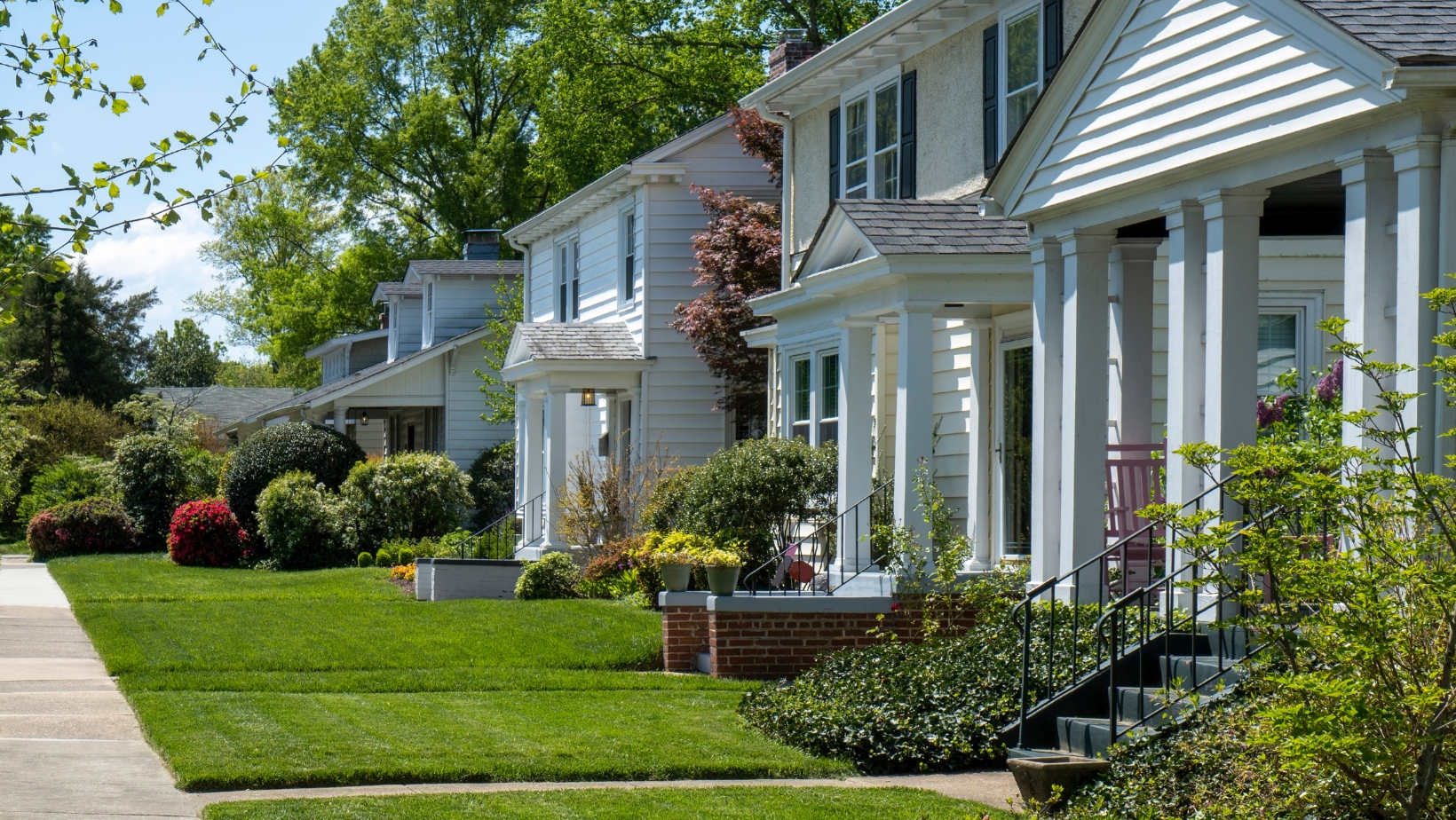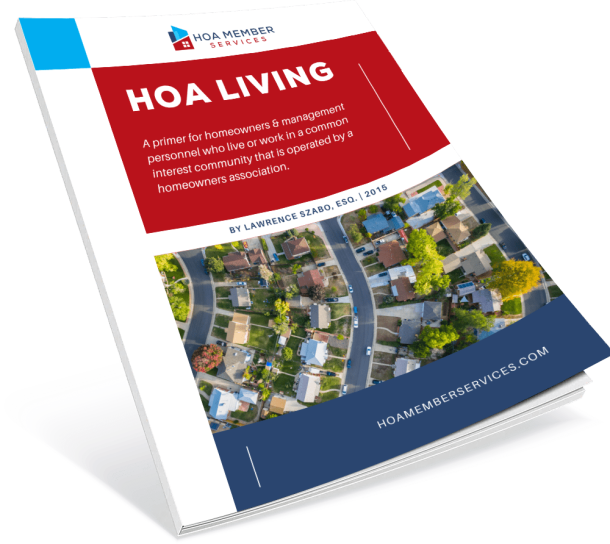Homeowners’ associations, commonly known as HOAs, are organizations set up to manage and maintain the community’s common areas and enforce the rules and regulations outlined in the community’s governing documents. They can be a great help in maintaining property values and ensuring a pleasant living environment. However, conflicts can arise when homeowners feel that their concerns or complaints are being ignored by the HOA. This blog post will explore whether an HOA can ignore your complaints and what steps you can take if you find yourself in this situation.

What Does an HOA Do?
An HOA board member is responsible for several tasks within a community, including:
Maintaining Common Areas
This includes landscaping, pool maintenance, clubhouse upkeep, and more. These common areas are crucial in providing residents with pleasant and safe recreational spaces. The HOA ensures that these areas are kept clean, safe, and functional, which involves regular inspections, repairs, and upgrades as needed.
Enforcing Rules and Regulations
These rules are usually outlined in the community’s Covenants, Conditions, and Restrictions (CC&Rs) document. The community associations CC&Rs cover various aspects of property use and appearance, such as exterior paint colors, lawn care, noise levels, and vehicle parking. The HOA’s role is to ensure compliance with these rules to maintain the community’s aesthetic appeal and harmony.
Collecting Dues and Assessments
HOAs collect dues from homeowners to fund maintenance and other community expenses. These funds are used for the upkeep of common areas, insurance, utilities, and sometimes special projects like community events or infrastructure improvements. Timely collection and prudent management of these funds are essential for the smooth functioning of the HOA.
Resolving Disputes
HOAs often mediate conflicts between neighbors and address complaints from homeowners. This can include disputes over noise, property boundaries, or rule violations. Effective dispute resolution helps maintain a peaceful community environment and ensures that all residents feel heard and respected.
Can an HOA Ignore Complaints?
Technically, an HOA should not ignore complaints from homeowners. HOAs are elected by the community members and have a duty to address the concerns of the residents they serve. Ignoring homeowner complaints can lead to a breakdown in trust and a dysfunctional community environment. However, there are instances where homeowners might feel their complaints are being ignored due to various reasons:
- Lack of Communication: Sometimes, complaints may not reach the board members due to poor communication channels or administrative errors. This could be due to lost emails, unreturned phone calls, or mismanagement of complaint logs. Improving communication systems within the HOA can help ensure all complaints are received and acknowledged promptly.
- Misunderstandings: The board might not fully understand the nature or severity of the complaint. It is crucial for homeowners to clearly articulate their concerns and provide all necessary details to avoid misunderstandings. Board members should also strive to actively listen and seek clarification when needed.
- Prioritization: The board might prioritize certain issues over others due to limited resources or perceived importance. While all complaints are important, the HOA may need to address issues based on urgency and impact on the community. Transparent communication about how priorities are set can help manage homeowners’ expectations.
- Disagreement: The board might disagree with the homeowner’s perspective and choose not to act on the complaint. In such cases, it is essential for the board to communicate their reasons clearly and provide the homeowner with options for further action, such as appeals or mediation.
What are the Steps to Take If Your Complaint Is Ignored?
If you feel that your HOA is ignoring your complaints, there are several steps you can take to ensure your concerns are heard and addressed:
- Review the Governing Documents: Start by reviewing the community’s CC&Rs, bylaws, and rules. Understanding these documents can help you determine if your complaint is valid and how the HOA should handle it. These documents often outline the processes for submitting complaints and the timelines for responses, giving you a clear framework for your expectations.
- Submit a Formal Complaint: Ensure your complaint is submitted in writing. Provide as much detail as possible, including dates, times, and any supporting documentation. Address the complaint to the board members and request a written response. A formal written complaint creates a record that can be referred to in future communications or actions.
- Follow-Up: If you don’t receive a response within a reasonable time frame, follow up with the board. Keep a record of all correspondence to build a paper trail. Consistent follow-up shows that you are serious about your complaint and helps ensure it is not overlooked or forgotten.
- Attend Board Meetings: Attend HOA board meetings and bring up your complaint during the open forum session. Board meetings are usually open to all homeowners, and this can be an opportunity to address your concerns directly with the board members. Speaking in person can sometimes have more impact than written communication and allows for immediate discussion.
- Form a Coalition: If other homeowners share your concerns, form a coalition to bring collective pressure on the board. A united group of homeowners can have a stronger voice than an individual. This can be especially effective if the issue affects multiple residents or if there is widespread dissatisfaction with the board’s handling of complaints.
- Request Mediation: If the board still fails to address your complaint, request mediation. Many HOAs have procedures for mediation to resolve disputes between homeowners and the board. Mediation involves a neutral third party who can help facilitate a resolution that is acceptable to both sides.
- Seek Legal Advice: If all else fails, consider consulting with an attorney who specializes in HOA law. Legal action should be a last resort, but it can be necessary if your rights are being ignored. An attorney can help you understand your legal options and represent your interests in any proceedings.
Common Types of Complaints
Understanding the types of complaints that HOAs commonly receive can help you frame your issue more effectively. Here are some typical complaints:
Maintenance Issues
Problems with common areas, such as unkempt landscaping, broken amenities, or poor lighting. These issues can affect the community’s appearance and residents’ enjoyment of shared spaces. Regular maintenance and timely repairs are essential for keeping common areas safe and attractive.
Rule Violations
Neighbors violating community rules, such as parking violations, noise disturbances, or unapproved modifications to their property. Rule violations can disrupt the community’s harmony and lead to conflicts between the owners and neighbors. The HOA’s role is to enforce rules consistently and fairly to prevent such issues.
Financial Concerns
Questions about how HOA dues are being spent or increases in assessments. Homeowners have a right to know how their dues are used and to have a say in budget decisions. Transparency in financial matters helps property owners build trust and ensures accountability.
Management Issues
Concerns about the management company’s performance or the behavior of board members. Effective management is crucial for the HOA’s success, and homeowners should feel confident in the board’s ability to act in the community’s best interest. Addressing management issues promptly can prevent larger problems from developing.
Safety and Security
Issues related to housing discrimination and community safety, such as inadequate security measures or hazardous conditions. Ensuring residents’ safety is a top priority for any HOA. Addressing safety concerns promptly can help prevent accidents and create a secure living environment for everyone.
How Do You Have Effective Communication with Your HOA?
Communication is key when dealing with your HOA. Here are some tips for effective communication:
- Be Clear and Concise: Clearly state your complaint and provide all relevant details. Avoid being overly emotional or confrontational. A clear and concise complaint is easier for the board to understand and address.
- Be Persistent but Polite: Follow up if necessary, but always maintain a respectful tone. Politeness and professionalism can go a long way in fostering a cooperative relationship with the board.
- Document Everything: Keep records of all communications, including emails, letters, and meeting notes. Documentation can be invaluable if you need to escalate your complaint or take legal action.
- Know Your Rights: Be informed about your rights as a homeowner and the HOA’s responsibilities. Understanding your legal standing can help you advocate more effectively for your concerns.
How Should HOAs Handle Complaints?
An effective HOA should have a clear process for handling complaints. Here are some steps an HOA should take:
- Acknowledge Receipt: The HOA should acknowledge receipt of the complaint promptly. This shows that the complaint has been received and will be addressed.
- Investigate: The board should investigate the complaint thoroughly and gather all necessary information. A proper investigation helps ensure that the board understands the issue and can make an informed decision.
- Communicate: The board should keep the homeowner informed throughout the process. Regular updates can help manage expectations and demonstrate that the board is taking the complaint seriously.
- Resolve: The board should take appropriate action to resolve the complaint. This may involve addressing maintenance issues, enforcing rules, or mediating disputes.
- Follow-Up: The board should follow up with the homeowner to ensure the issue has been resolved satisfactorily. Follow-up helps confirm that the solution was effective and allows for any necessary adjustments.
What Legal Protections Are There for Homeowners?
Homeowners have certain legal protections when dealing with their HOA. Here are some key points:
Fair Treatment
HOAs must treat all homeowners fairly and without discrimination. This means enforcing rules consistently and ensuring all residents have equal access to HOA services and benefits.
Due Process
Homeowners are entitled to due process, meaning they should have an opportunity to be heard and to appeal decisions. Due process ensures that homeowners can defend themselves in court and seek fair resolutions.
Transparency
HOAs must operate transparently and provide homeowners with access to records and information. Transparency helps build trust and ensures that the HOA is accountable to the community.
Right to Complain
Homeowners have the right to file complaints without fear of retaliation. Retaliation can include actions like fines, harassment, or unfair treatment, and it is illegal in many jurisdictions.
The Importance of Active Participation
Active participation in your HOA is crucial for ensuring your voice is heard. Here are some ways to get involved:
- Attend Meetings: Regularly attend board meetings to stay informed and voice your concerns. Attendance also allows you to understand the board’s decision-making process and contribute to discussions.
- Join Committees: Volunteer for committees to have a direct impact on community decisions. Committees often focus on specific areas like landscaping, security, or social events, allowing you to use your skills and interests to benefit the community.
- Run for the Board: Consider running for a board position to influence policies and address issues directly. Serving on the board gives you the authority to make changes and ensures that homeowners’ concerns are considered in decisions.
- Engage with Neighbors: Build relationships with your neighbors to foster a sense of community and collective action. A strong community network can support your efforts to address issues and advocate for improvements.
Are There Resources That Can Help Me?
If you live in a homeowners association community, it’s important to know your rights and what to do if your HOA is ignoring your complaints. HOA Member Services offers a wealth of knowledge through our guides and articles.
Conclusion
While it can be frustrating if your HOA appears to ignore your complaints, there are steps you can take to ensure your concerns are addressed. Understanding your rights, communicating effectively, and actively participating in your community are key strategies. If necessary, don’t hesitate to seek legal advice to protect your interests. Remember, HOAs are meant to serve the community, and your voice matters in maintaining a harmonious and well-managed neighborhood.
By taking proactive steps and working collaboratively with your HOA, you can help create a positive living environment for yourself and your neighbors. Whether through formal complaints, attending meetings, or legal action, your involvement is crucial in ensuring that the HOA fulfills its responsibilities and addresses homeowners’ concerns.






